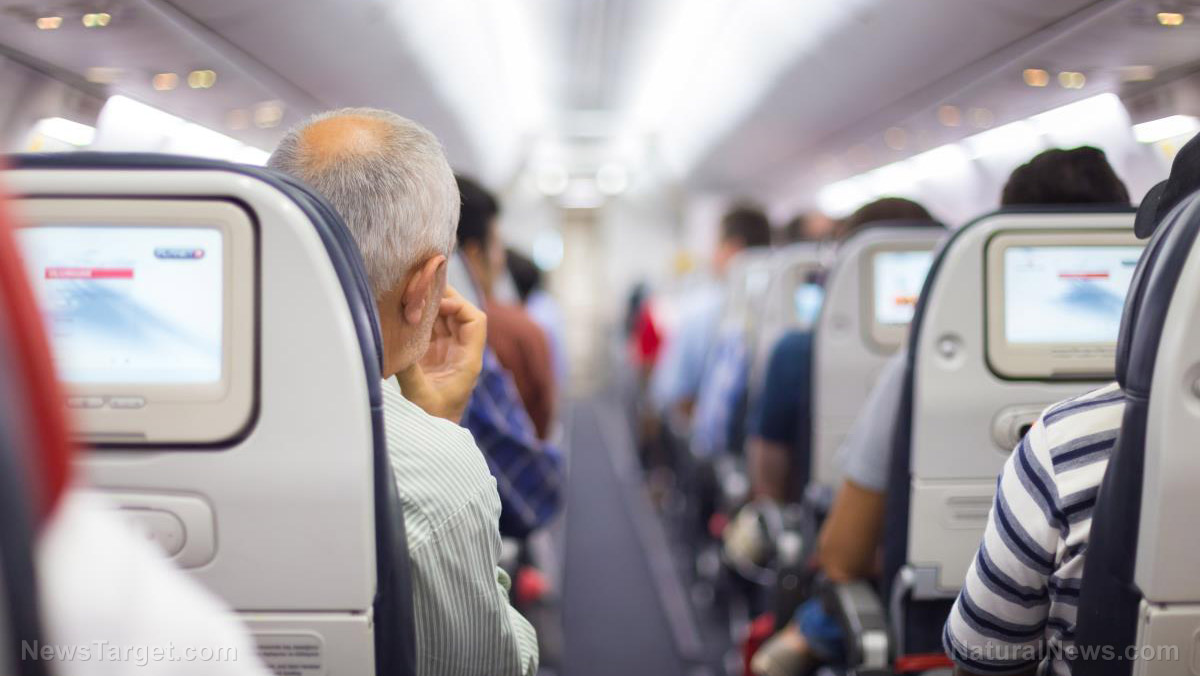How to care for yourself mentally and emotionally after experiencing trauma during an airplane flight
05/16/2018 / By Zoey Sky

If you’re already wary of traveling by air, recent news reports might have added to your apprehension when it comes to airplanes. For example, last April, tragedy struck a Southwest Airlines flight, with one passenger dead after an engine exploded.
Many of the passengers on the same flight were shaken as they witnessed firsthand how vulnerable we are when we travel by plane. According to the National Transportation Safety Board, flight disturbances like this can happen at least three or four times a year.
Now, when you’re trapped at 30,000 feet, how do you deal with the trauma caused by what you’re experiencing?
Carmen Visan, a Seattle-based therapist in private practice, said that the earlier you learn to process the traumatic event, the better it is for your mental health. (Related: Big Trauma Vs. Little Trauma: What’s the Difference?)
Visan warned that while your instinct may be to block the traumatizing event from your mind, this is the last thing that you should do because it might “repress and postpone healing.” She continued that the best way to deal with trauma is to practice “[conscious], sustained, and supported engagement with the entirety of the memory of the event.”
Visan advised individuals to talk about the event by expressing emotions physically and verbally. Another way to deal with it is to find a healing and nurturing place where you can talk to people you trust.
If you’ve lived through a plane crash or other trauma in the air, you might be wondering if you’re going to die. This is normal because it’s the most basic fear we have hardwired into our brains: “The fight for survival.”
When you survive an event like a plane crash, it may cause major trauma and this can result in post-traumatic stress disorder (PTSD). People often deal with PTSD for some time following such an event. However, if you’re struggling with symptoms, you may need to consult a therapist or join a PTSD support group so you can discuss the incident with people who have had the same experience.
Other things you may start asking yourself include: “Will I be able to fly again after this?” or “Can I let my loved ones get on planes after this?”
Coping strategies for trauma caused by an airplane flight
If you’re unsure what kind of coping strategies to try after you’ve experienced traumatic flight disturbances, Visan suggests consulting trained trauma professionals because your recovery is mostly psychological in nature. Instead of hiding the memory in your mind, discuss it with people you trust so you can come to terms with your feelings and fears.
If you’re wondering what it’s like to experience trauma firsthand, possible symptoms may involve:
- Avoidance of references to the traumatic event
- Being bothered by intrusive thoughts
- Increased vigilance
- Persistent hyper-arousal to triggers
- Social isolation
- Trouble sleeping
In some cases, these symptoms may be misinterpreted as generalized anxiety or depression in adults or even panic attacks when in fact they should be diagnosed as symptoms of PTSD.
If you or anyone you know is struggling with trauma due to an airplane flight, consult a trained trauma expert for a therapeutic debrief. You can either join an individual or group debriefing session to address any of your concerns so you can process your feelings in a suitable manner.
Other tips to deal with trauma
If you’re still unsure how to properly deal with trauma, follow the steps listed below:
- Don’t rush your healing. It may take you weeks or months to accept what happened, and that’s perfectly normal.
- Instead of ignoring the accident, try to find out what caused it in the first place so you can have closure.
- If there are casualties from the flight disturbance, try to attend funerals or memorial services. Aside from comforting the families of those who have passed away, doing this can help you accept what happened by spending time with others who have had the same experience.
- Talk about what happened with your family and friends, but try to understand that they may not always know what to say to you.
- Spend time alone so you can process your thoughts and feelings about the incident.
- Try to discuss the traumatic event in your own time. Never feel bad for crying when you talk because this is a natural way of dealing with traumatic experiences.
- Do your best to resume a normal routine, like eating regular meals or exercising.
- Spend time with other people and do “normal” things to take your mind off of what happened, which could comfort you.
You can learn more about how you can care for your mental health after a traumatic event at Mind.news.
Sources include:
Tagged Under: air travel, airplane flight, Airplanes, chaos, disaster, emotional health, flight disturbance, mental health, mind body science, mind-brain connection, post traumatic stress disorder, Psychology, PTSD, trauma, traumatic events




















